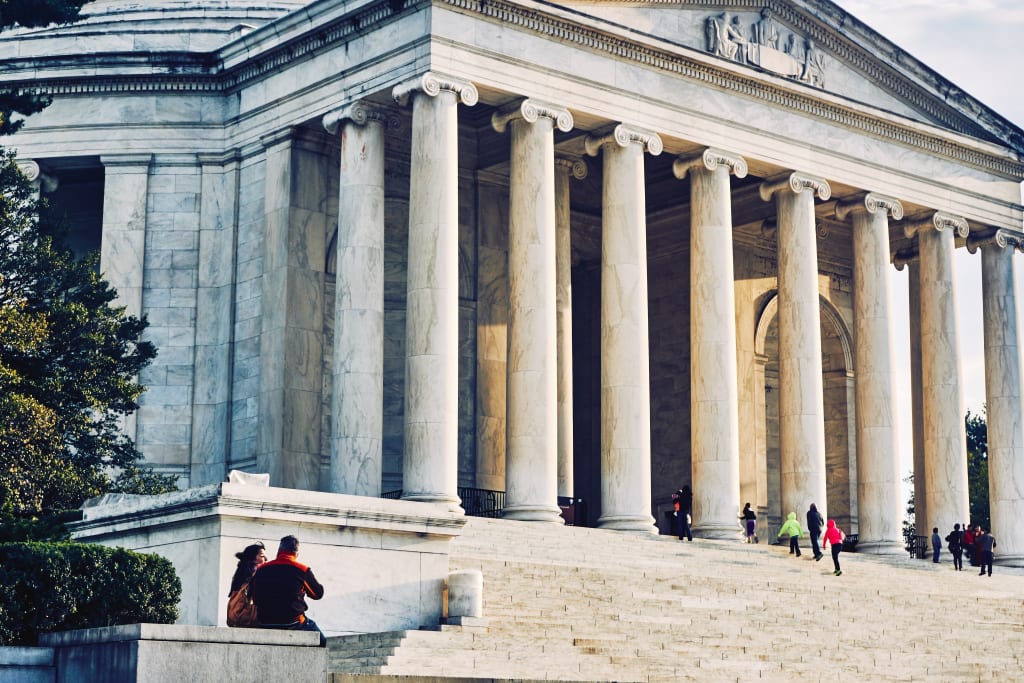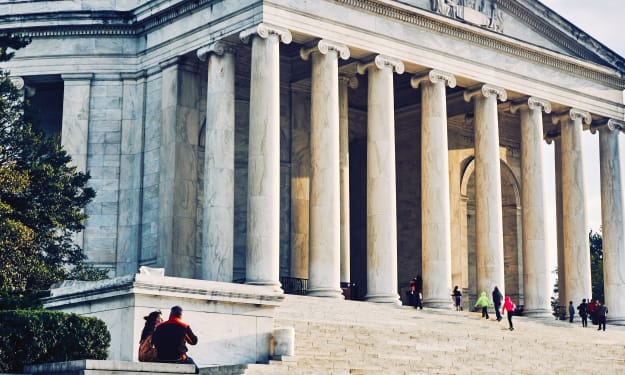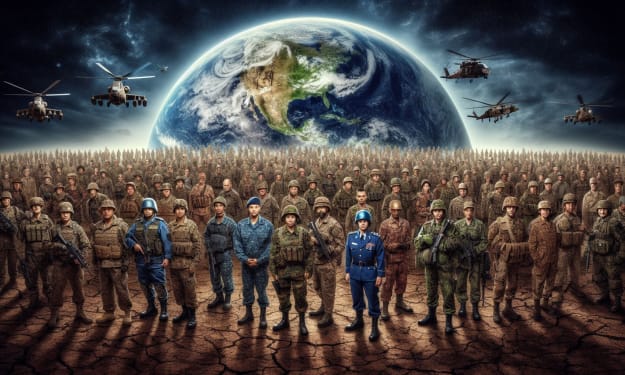
We are at a watershed in history. We are at a time when the next 50 years will probably shape the future 1,000 years of human existence.
It is mid-January 2019, Britain is in political turmoil over the plans to leave the EU. America is in political turmoil as the impasse between President and the Houses of Representatives continues. All around the world, there is political unrest. In France, the yellow vest disturbances continue. In Venezuela, there is such economic chaos that millions are trying to leave the country. In northern Africa, vast numbers of people are paying criminals to help them get into Europe. In Europe, there is political unrest caused by economic problems. In Greece, Spain, Italy, and even in Germany, there is growing dissatisfaction with the government. Austria is electing far-right politicians. Even in the Scandinavian nations, there is growing unease over the influx of economic migrants. In the Middle East, there is open military conflict in some places and total lack of cohesive government in others. Democracies are in trouble and democracy itself is facing a big test.
There can, and probably will, be a huge debate about how all this has come about, but that is for historians of the future. What is important now is what we do about it. Some understanding of the cause is needed in order to arrive at solutions that will last, but we must try to minimise the who and why, and focus more on how to correct and improve the situation.
Without political power, or economic power, we, as individuals, can only offer opinions based on experience and observation, and spreading these opinions may have some influence for good.
When the European nations discovered Africa, they made several mistakes and countless generations have suffered because of these mistakes. One was the artificial drawing of boundaries on maps and claiming these were now the nations of Africa to be controlled by selected European states. They totally ignored the indigenous people and the differences between their various indigenous nationalities. This same mistake, in a modern disguise, was made in attempting to turn all of Europe into one union. Cooperation between nations is a worthwhile objective, forcing or tricking nations into merging into one collective state is quite another. Nearly all the political turmoil has one origin, the seeking to impose one set of political ideals on people who have a wide range of differing views.
Our modern world has the ability to share ideas and news, and lies, in a way never before possible. The sheer numbers of people and the wide range of variations in political views make consensus impossible. It also means the first principle of democracy, that everyone accepts and abides by the will of the majority, no longer applies. Our political machinery has not adjusted to this change in political ambience. Political parties still act as if they can formulate policies, based only on their own ideology, and the whole of the electorate will welcome it and abide by their governance. This is a mistaken view.
It is impossible to get consensus and it is impossible to get complete acceptance of a majority view, especially when there is only a small majority. So how do we govern ourselves? The range of options include the completely unacceptable and the totally unrealistic, but it is necessary to consider them. A dictatorship, with fascist-style enforcement of all activities, or an “Orwellian” style of communism, also enforcing one set of views and activities, but with the rulers almost unknown to the mass of people. Return to monarchist rule in the governance being hereditary, so chosen by “God” rather than popular vote. Breaking up of existing nation states into much smaller “principalities,” or even a return to city states of history; then each one could have its own political ideology of governance and people could “vote” for that ideology by moving to live within that principality. Changing the United Nations from a money pit of bureaucracy and waste into a real forum that could act as a world government or, more practically, as a world supreme court—a place where all disputes between nations are settled without bloodshed and war. I do not expect many people to hold their breath waiting for this. Give up all notions of nationality, allow governance by commercial global corporations. Just accept that a small elite of all powerful mega wealthy families will control all the money, so let them simply control everything. Remove all national boundaries, give up all religious ideas, and allow rampant corporate commercialism to run everything and everybody.
The religious beliefs of various groups of people is one factor that is going to dictate how they are governed. Some belief systems claim that religious belief overrules any secular government. In this situation, the religion and the religious leaders become the government. History shows such governments are extremely reluctant to allow change and they impose fascist-style laws to ensure their own continued rule. Dissent becomes a sin, and so both a civil and a religious crime. When such forms of governance collapse, they tend to enter a period of chaos and civil war.
One possible solution to all this is to accept existing national boundaries to require that any person who leaves one nation in order to live in another must have the permission of the new nation, and that they become a national of the state they join within 12 months—not just on paper, but to fully integrate with the beliefs, customs, and governance of the indigenous people. Within each nation, there should be a breakdown of political power to the smallest possible grouping. Get rid of political parties, let each representative of an area be selected on merit and personal appeal only; no party dogma, no party machine. Then, let these representatives select leaders to govern each nation with a requirement of elections every three years. Use local and national referendums on all major issues. Make state spending a fixed proportion of gross national product. Require every nation to work towards self-sufficiency in food water and energy. The aim is to be self-sufficient within 20 years. Part of this drive towards national self-sufficiency will be reductions in populations. In this way, we save democracy, we save people from conflict, and we save the environment.
About the Creator
Peter Rose
Collections of "my" vocal essays with additions, are available as printed books ASIN 197680615 and 1980878536 also some fictional works and some e books available at Amazon;-
amazon.com/author/healthandfunpeterrose
.






Comments
There are no comments for this story
Be the first to respond and start the conversation.